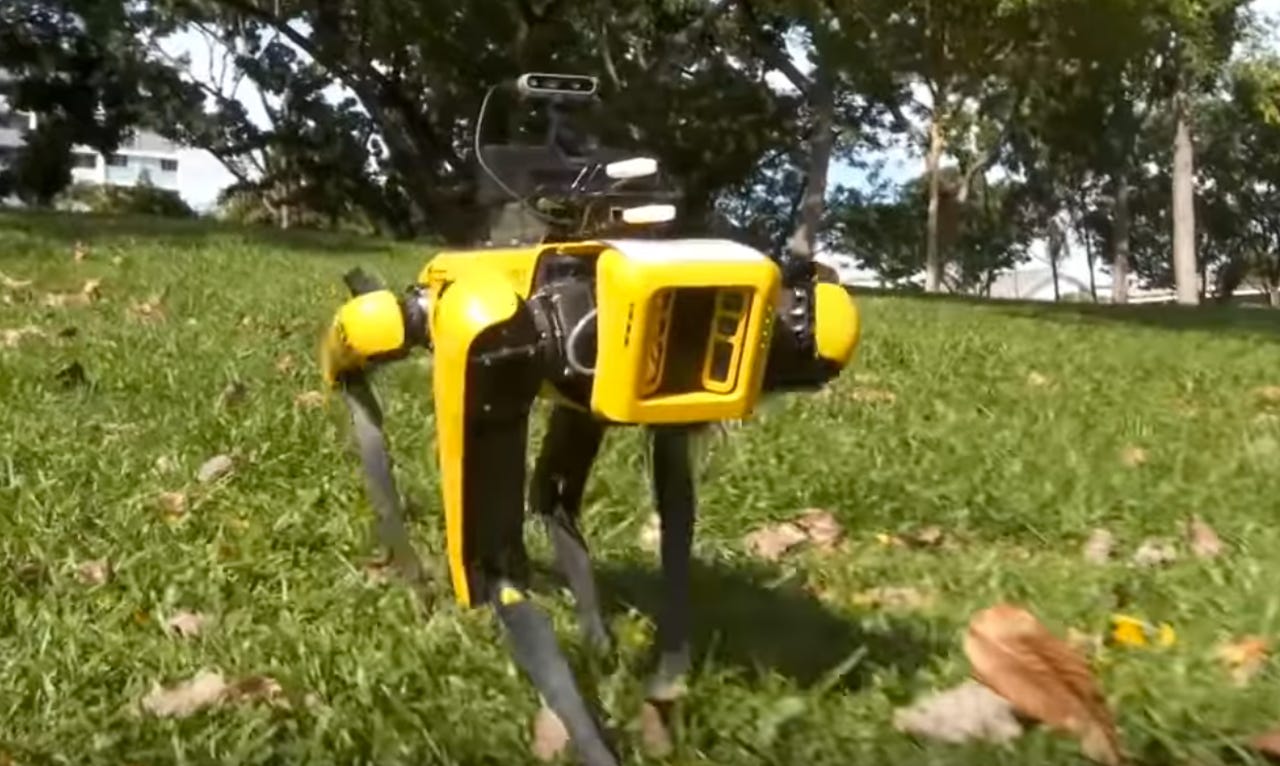No, robot dog, I won't be policed by you

The four-legged robocop.
I appreciate policing, but not too much policing.
I feel the same way about artificial intelligence.
It's useful at times, but please don't ram it down my throat -- or into my ears -- as if it's a miracle cure. That's a little much.
I'm therefore fascinated but ultimately disturbed by an experiment currently being enacted by Singapore's government.
It's letting loose Boston Dynamics' robodog Spot into one of its verdant parks, Bishan-Ang Mo Kio.
No, it's not there to show off their prowess at volleyball or skipping. Instead, this leashless roboanimal plods around the park, as if it's competing in the Olympic Incompetent Dressage Event, with a camera on top of its head.
Their role is to measure whether Singaporeans are sufficiently socially distanced. And, of course, to tell Singaporeans to avoid misbehaving.
I understand the impulse. The coronavirus has brought great fear to the world. Moreover, Singapore has always fancied itself as a techie sort of tomorrow and it's now in a second wave of the virus.
I worry, though, whether hearing the loud mechanical whirr and the somewhat portentous, heavy-legged footsteps of the robodog may disturb any pleasure of a walk in the park.
This isn't a friendly creature. It doesn't have the human touch of local policing.
When it marches in place, one can't help be reminded of certain countries that hold parades to market their military strength.
It's hard to look at these things and think them cute. They resemble a praying mantis whose head got chopped off in a moment of extreme ardor -- which led them to join the police force.
When Spot performs its dog-like squats, its intentions look menacing rather than helpful. Moreover, its warnings are repetitive and only remind one of airport announcements that always seem to involve the plane you're not intending to board.
It's sad to think people aren't sufficiently cognizant of the social distancing rules to enact them for themselves. Then again, my wife and I went for a walk the other day and more than half the people on the street weren't wearing masks.
I would, though, like to offer a more helpful use for such robodogs. Instead of harassing pedestrians, they could be repurposed to focus solely on cyclists.
The newly-emptied streets have given cyclists -- at least in my part of California -- an even greater sense that they own the roads, the sidewalks and, indeed, California.
If these robodogs could be speeded up and trained only to focus on cyclists and their maddening behavior -- riding three abreast, blasting through red lights and stop signs, vastly exceeding the speed limits on paths they're supposed to share with walkers, zig-zagging across the road, wearing tasteless shirts celebrating cheese brands and foul-tasting cocktails -- then I'd become a robodog lover.
It's unfair of me, I know. But I believe all artificial intelligence should have a specific purpose. It should also, of course, make the world a better place.
